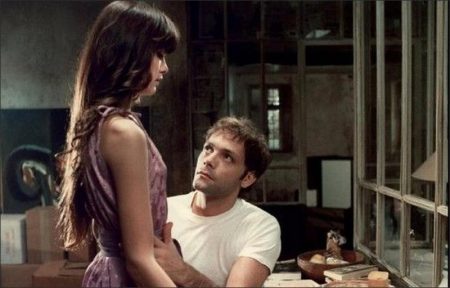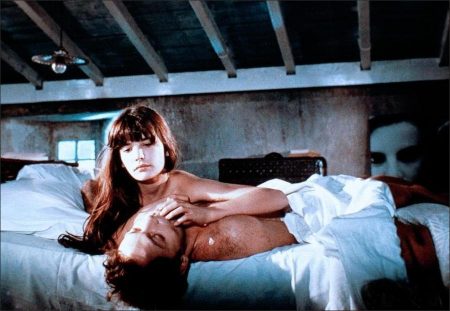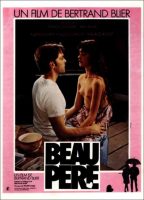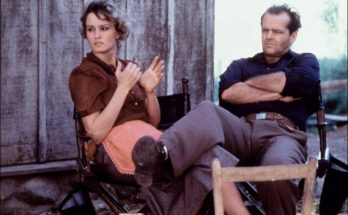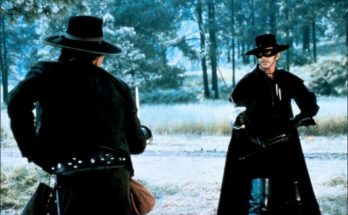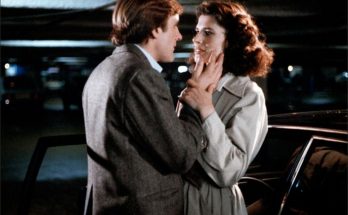Taglines: The story of an extraordinary seduction…
Beau-père movie storyline. Rémi is a struggling pianist with a wife named Martine, a model who is getting too old to find desirable work, and a 14-year-old stepdaughter Marion. When Martine is killed in a car crash, Marion expresses her desire to stay with Rémi in their apartment, but is taken away by her father Charly, an alcoholic who dislikes Rémi. Marion comes back, much to her father’s disapproval, and takes up babysitting to help make ends meet while Rémi gives piano lessons. Soon, Marion tells Rémi she is physically attracted to him, but he resists her advances because of her young age.
When Marion proves to be anemic, she is sent to the mountains with her father while Rémi loses his apartment and moves in with friends. A broken man, he meets with Marion and they have sex in a hotel. She comes back to live with him in a run-down and condemned house, and although he first resists any more sex, gradually gives in.
While visiting, Marion’s father at one point sees the two embrace. He asks them if they are having an affair, but when Rémi objects, Charly apologizes and leaves. Eventually Rémi takes interest in an older woman, Charlotte, who is also a more skilled piano player, while Marion also seeks out a substitute for him and moves back in with her father.
Beau-père (anglicized to Beau Pere or Stepfather) is a 1981 French comedy-drama film directed by Bertrand Blier, based on his novel of the same name. It stars Patrick Dewaere, Ariel Besse and Maurice Ronet and is about a 30-year-old pianist who has an affair with his 14-year-old stepdaughter after her mother dies in a car accident.
The film played at the 1981 Cannes Film Festival and had an international release. It received some positive reviews in spite of its controversial subject.
Writer and director Bertrand Blier declared Beau Pere was intended as “an ode to the fair sex and to womanhood in its purest form.”[2] Like Blier’s earlier film Going Places (1974), he based it on a novel he had written, also titled Beau-père.[3]
The film was shot in Sèvres and Ville-d’Avray. The bass played by Maurice Risch’s character is performed by musician Stéphane Grappelli.
About the Production
The film stars Patrick Dewaere, and is one of his last films.[5] He had appeared in Blier’s films before, though never without Gérard Depardieu.[6] Actress Nathalie Baye described her role as small, but said working with Blier and producer Alain Sarde was educational, and Blier managed to both listen to others while having a vision of what he wanted to shoot.
Beau Pere also stars Ariel Besse in her first film role, and she was 15 at the time. Although she is nude in the film, her parents gave approval, saying she was treated sensitively. Besse secured the role after Sophie Marceau turned it down.
The film was entered into the Cannes Film Festival in May 1981. It had a total of 1,197,816 admissions in France, with Blier claiming the poster chosen by the distributor was awkward and discouraged the public from seeing the film. Besse’s parents sued the distributors and producers over the poster, which shows Besse’s breasts, as it was placed on billboards around France without their permission. The judge favoured the producers, saying the film was more revealing than the poster. Beau Pere was among Blier’s least commercially successful films.
The film played at the New York Film Festival in October 1981. The film was released in the U.K. as Stepfather and in the U.S. as Beau Pere. In Canada, the film was banned in the province of Ontario but approved for Quebec and British Columbia, and was a particularly controversial case concerning censorship and community standards.
Beau-père (1981)
Directed by: Bertrand Blier
Starring: Patrick Dewaere, Ariel Besse, Maurice Ronet, Geneviève Mnich, Maurice Risch, Macha Méril, Rose Thiéry, Pierre Le Rumeur
Screenplay by: Bertrand Blier
Production Design by: Théobald Meurisse
Cinematography by: Sacha Vierny
Film Editing by: Claudine Merlin
Costume Design by: Michèle Cerf
Makeup Department: Alfonso Gola
Music by: Philippe Sarde
Distributed by: Parafrance Films
Release Date: September 16, 1981
Visits: 2097
